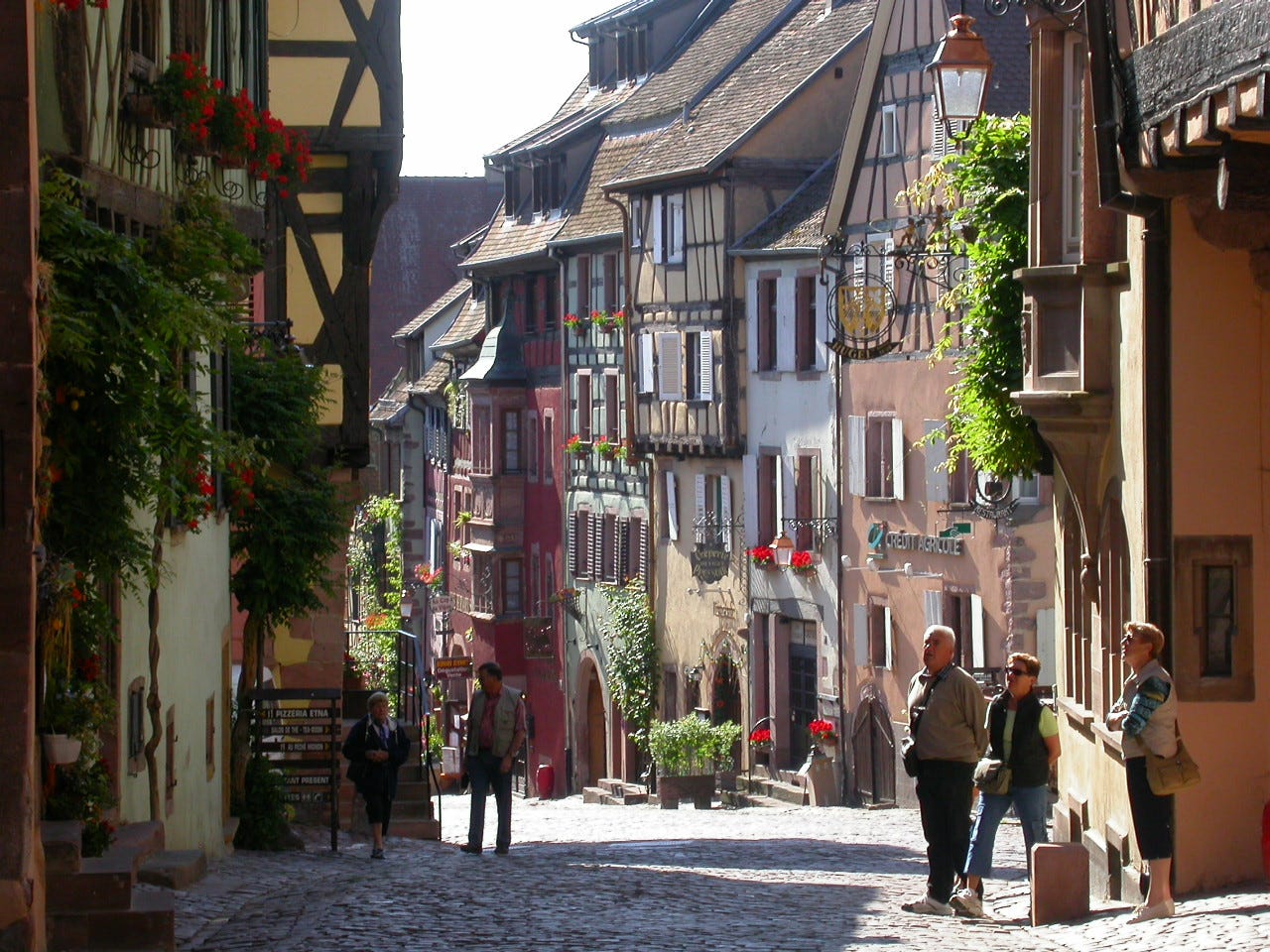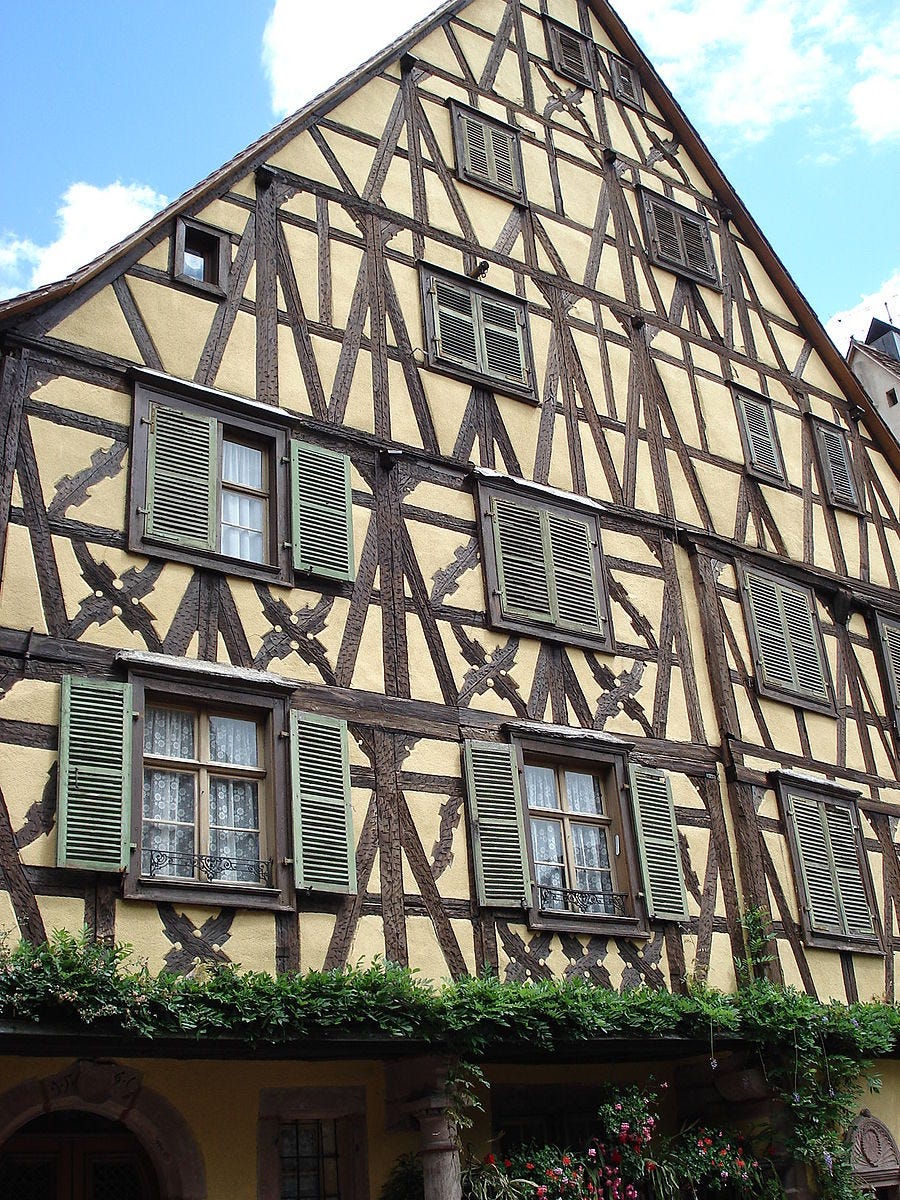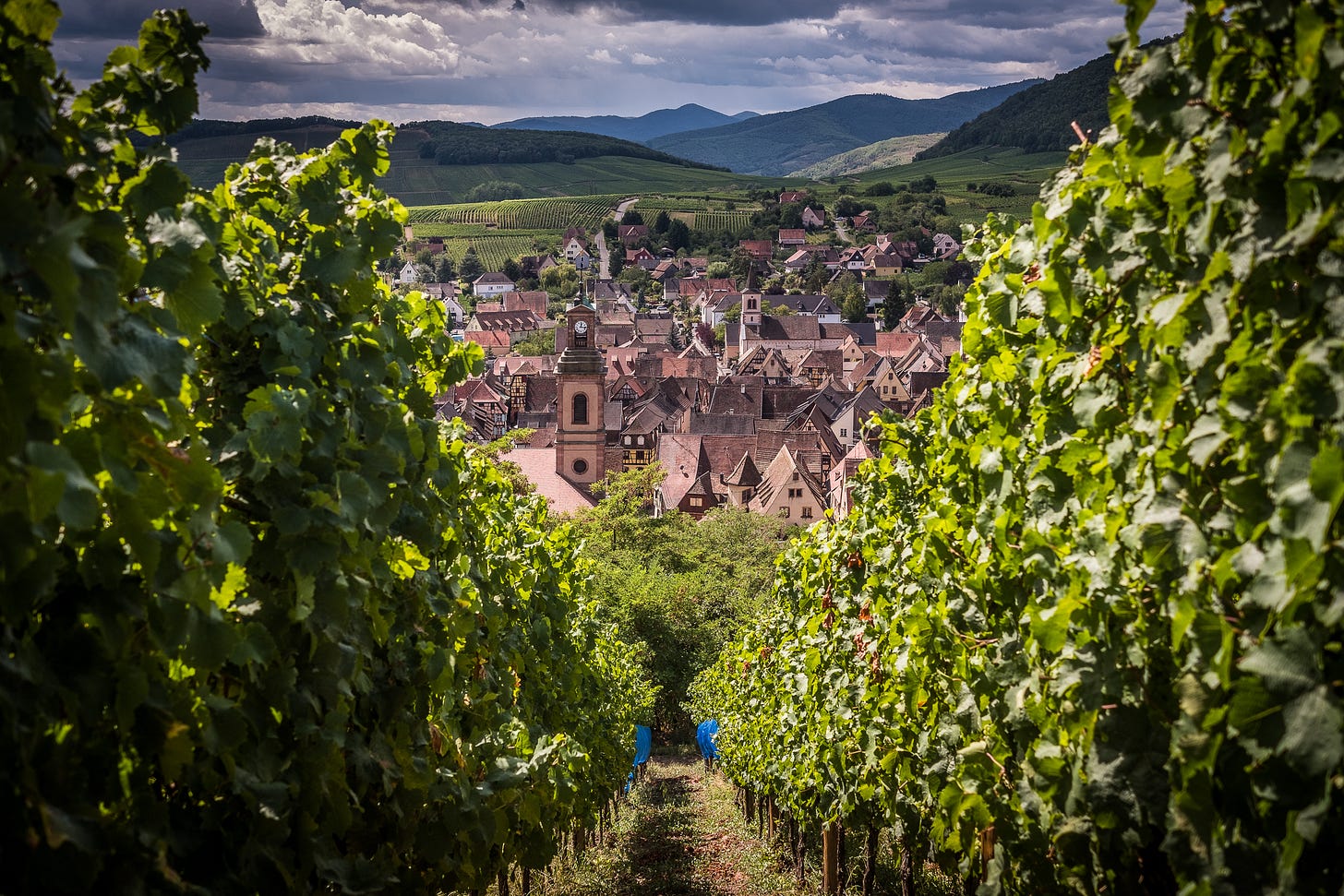Portraits of France: Riquewihr in Alsace
In the second of our series on French villages, we go to Alsace, renowned for its wines, its landscape, and its French-German culture.
The Alsace region is renowned for its wines, and some would argue that its Rieslings and Gewürztraminers are superior to those bottled across the border in Germany. Of course, grapes know no frontiers, and although the Alsatians have been making wine since the third century AD, Alsace has only been part of France for about 370 years. Whatever the case, something magical does seem to happen along the region’s celebrate Route du Vin, a lush valley dotted with dozens of winemaking villages.
By common acclaim, the pearl of them all is Riquewihr. Not only does this village 41 miles southwest of Strasbourg produce one of the world’s great Rieslings, but the village also shelters some of the most extraordinary Renaissance houses in Europe. While many French villages make their statements in stone, in Riquewihr the word is wood. These half-timbered facades defy gravity as they hang over the narrow streets, and the corners of almost every building are adorned with carved figures. Trellises, balustrades, and balconies compete for the eye’s attention with carved whorls and fleurs-de-lis.
And everywhere, the smell of wine! You could get drunk just walking through these narrow lanes, and no doubt some people do. But despite the fame of Riquewihr’s vintages, success has not led to compromise—there are no mechanized bottling plants here. If you don’t believe it, just stroll into the Court of Strasbourg, where during the middle ages the bishops from the Alsatian capital stayed when visiting the town, and you might find men in smocks filling bottles by hand.
Although Riquewihr has prospered for hundreds of years, it appears that those who threatened community values were once treated quite harshly. For evidence, pay a visit to the Tower of Thieves, whose spooky passageways lead to a fully-equipped torture chamber, complete with pincers for ripping flesh, thumbscrews, and a bell that can be placed over the prisoner’s head and then rung vigorously. (Recent rumors that the French government uses this chamber for citizens who refuse to get vaccinated or wear masks are wildly exaggerated.)
After a morning’s walk through the narrow streets, you will probably have worked up an appetite. This is just as well, because Alsatian cuisine is nothing if not robust. You can’t do better than lunch at Le Sarment d’Or. Sitting under the restaurant’s wood-beam ceiling before a magret de canard or choucroute, with a bottle of Riesling close at hand, you will understand why those bishops made the trip all the way from Strasbourg.







